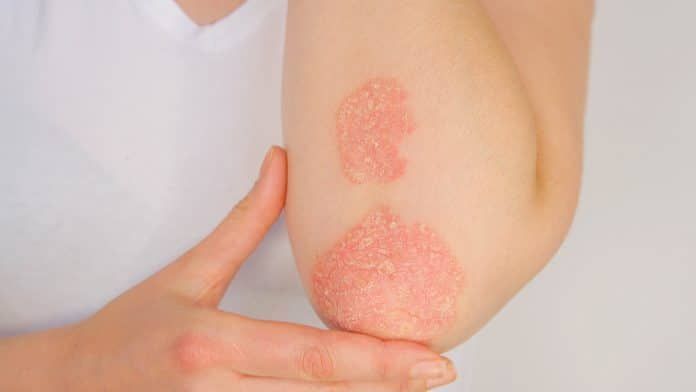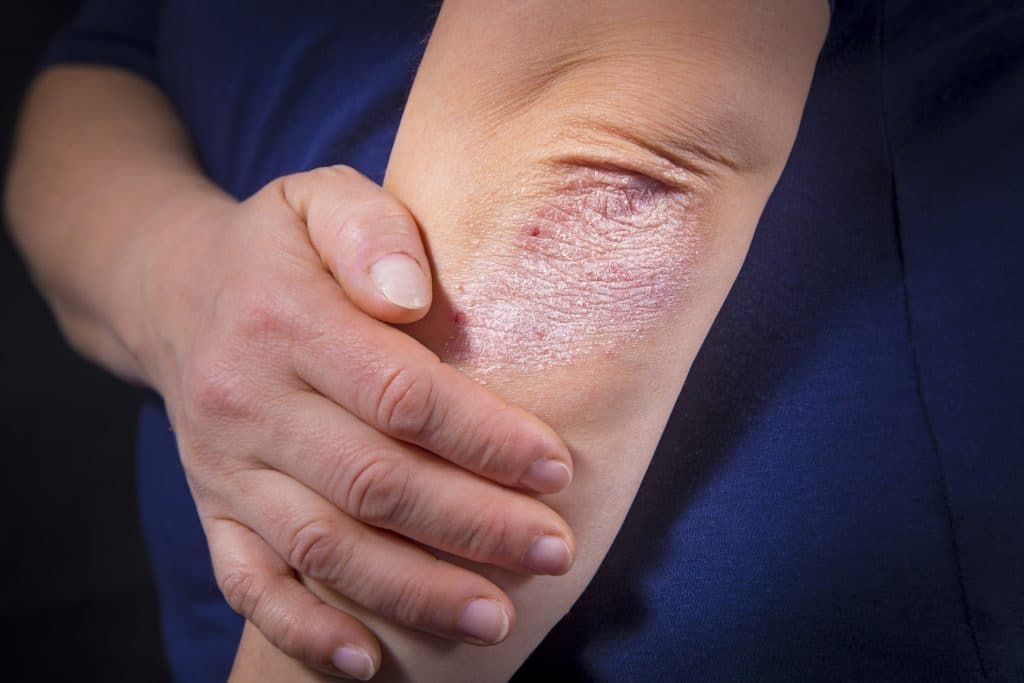
Is psoriasis contagious?
Psoriasis is one of those skin diseases that are still not well known and that raise questions: is it contagious? ? Is it dangerous ? Follow us, we will help you to better understand psoriasis and dispel the stereotypes that still surround this skin condition.
Is psoriasis contagious? ?
First of all, let's remember what psoriasis is. In the medical vocabulary, this disease is an inflammatory dermatitis. Kézako ?
Psoriasis is a disease characterized by the appearance of red patches on the skin. These patches are caused by a too rapid renewal of the epidermis which generates an inflammatory reaction. As the skin regenerates too quickly, cells accumulate on the surface and form scales – whitish flakes of skin that cover the surface of the skin.
Then comes scaling – when the scales come off the plaques – which can be accelerated by scratching the plaques.
Psoriasis is also a very common condition chronic disease It is long-lasting, progressive, and it impacts daily life. There are, however, some ways to deal with psoriasis natural treatments to alleviate psoriasis plaques. Finally, you should know that this pathology evolves in flare-ups: the person suffering from psoriasis will most often alternate periods marked by the appearance of plaques, thanks to a stressful event for example, and moments of remission when the psoriasis seems to have disappeared.
Be careful, though: psoriasis is not yet curable, although treatments are being perfected and can greatly reduce the symptoms. Finally, you should know that there is not one, but several types of psoriasis: they affect different parts of the body – face, scalp, genitals, hands, nails, etc. There are, however, other forms of psoriasis, such as guttate psoriasis, plaque psoriasis, pustular psoriasis, etc.
But then: is psoriasis, from which there is no cure, contagious? ? Absolutely not ! So don't look at that young woman with psoriasis who is diving into the pool, don't change seats on the train because your neighbor has patches on his face, don't stop kissing your uncle who has scales in his hair and don't refuse to take the mail that your mailman, who has psoriasis on his hands, hands you. We keep telling you: psoriasis is not contagious. So don't be afraid to spread it or catch it.
Although researchers are not yet sure of the exact causes of psoriasis, it is certain that the disease is linked to genetic predisposition and that it appears when certain triggers are present.
In short, all patients have a genetic background favorable to the disease, and psoriasis flare-ups can be triggered by stress, certain medications or certain infections. If you are well convinced that psoriasis is not contagious, let's move on to our second question: is psoriasis dangerous? ?

Is psoriasis dangerous?
Here again, we must fight the clichés. In the vast majority of cases – except in very severe and rare forms – psoriasis is not dangerous for the patient's health. However, you should know that certain diseases affect people with psoriasis more frequently.
This is the case for certain inflammatory diseases of the digestive tract, cardiovascular disorders or thyroid inflammations. So check for comorbidity – the combination of two diseases – but it's not psoriasis that will be life-threatening.
On the other hand, the social and psychological consequences of psoriasis must be taken seriously: if the skin condition does not present any risk to your health, it is important to discuss it with a doctor so that the treatment can be continued chronic inflammatory disease should not be a source of discomfort. Many solutions exist, from dermocorticoids prescribed by the dermatologist to small simple gestures, such as moisturizing the skin with natural products or changing one's diet .